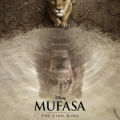
The Lion King, an animated masterpiece, has been a significant part of my childhood and stands as an iconic piece in the world of cinema. Released in 1994 by Disney, this movie enthralls audiences of all ages. When I first watched The Lion King, I was struck by its vibrant animation, memorable music, and compelling storyline. That captivating experience is one I cherish, revisiting the film occasionally to relive the wonder it offers.
Analyzing The Lion King from diverse perspectives offers a comprehensive look at what makes this film so enduringly special. From its historical success to its profound themes, The Lion King remains a landmark in animated filmmaking. In this review, I delve into various aspects that contribute to its timeless appeal, along with my personal reflections as someone deeply moved by its tale.
History and Background
Released in the summer of 1994, The Lion King achieved monumental success both commercially and critically. Directed by Roger Allers and Rob Minkoff, the film was the 32nd animated feature in the Walt Disney Animated Classics series. It quickly gathered accolades, earning two Academy Awards for its music and a Golden Globe for Best Motion Picture. Its success laid the groundwork for a franchise that includes Broadway adaptations, sequels, and a 2019 live-action remake.
What sets The Lion King apart historically is its inspiration. While many Disney films draw from fairy tales, The Lion King was an original story with influences from Shakespeare’s "Hamlet" and African landscapes. This unique blend of inspirations gives it a distinctive place in the Disney canon, resonating deeply with viewers through its narrative richness and cultural tapestry.
The Setting's Majesty
The African savanna, where The Lion King is set, is brought to life with vibrant colors and meticulous detail. The animators painstakingly studied African landscapes and wildlife to authentically portray the environment. The result is a breathtaking visual expanse that immerses viewers into Simba's world. From the lush Pride Lands to the barren elephant graveyard, each locale contributes to the storytelling in powerful ways.
For me, the visual splendor of The Lion King is one of its most engaging elements. Watching the sunrise over Pride Rock or witnessing the wildebeest stampede still leaves me in awe. Through these intricately crafted scenes, the film not only tells Simba's story but also celebrates the beauty and diversity of nature, further enhancing its appeal.
Character Complexity and Growth
At its heart, The Lion King is a coming-of-age tale centered on Simba, a lion cub who must navigate a treacherous journey toward maturity and self-discovery. The transformation of Simba from a naive cub to a mature leader is portrayed with sensitivity, highlighting themes of responsibility, courage, and identity. Each supporting character, from wise Mufasa to mischievous Timon and Pumbaa, contributes uniquely to Simba's evolution.
The complexity of characters like Scar also enriches the narrative. His cunning and ambition add layers of conflict that make the story more compelling. This intricate characterization offers a rich tapestry of relationships and emotions, something that resonated with me deeply as it beautifully mirrors the complexities of real life.
The Music's Emotional Depth
The music of The Lion King is legendary, with compositions by Hans Zimmer and lyrical contributions from Elton John and Tim Rice. Songs like "Circle of Life," "Hakuna Matata," and "Can You Feel the Love Tonight" are more than just musical numbers; they are integral to the storytelling, enhancing emotional arcs and deepening the narrative impact.
Personally, the soundtrack is a highlight of the film. Even years later, the emotive power of the music strikes a chord within me. The grandeur of "Circle of Life" or the whimsical joy of "Hakuna Matata" continues to elevate the storytelling experience, making the film memorable long after the credits roll.
Narrative Structure and Themes
The Lion King's story stands out for its narrative depth and exploration of universal themes such as destiny, loss, and redemption. The film follows a classical narrative structure with a hero's journey at its core. Simba's personal growth and acceptance of his place in the "circle of life" speak to audiences on multiple levels, invoking a sense of introspection.
For me, the themes of the film have resonated in various life stages, offering insights into dealing with challenges and understanding one's identity. It's this thematic richness that gives The Lion King its enduring legacy, making it more than just an animated feature but a philosophical exploration of life itself.
The 2019 Remake: A Technological Feat
The release of The Lion King's 2019 remake directed by Jon Favreau showcased Disney's innovation in CGI technology. Although the remake was often faithful to the original, it introduced a hyper-realistic aesthetic that polarized audiences. The technical achievement was undeniable, yet many fans felt it lacked the emotional resonance of the 1994 version.
From my viewpoint, while the visual realism was impressive, it couldn't replicate the warmth and expressiveness of the hand-drawn animation. The original's evocative charm seemed somewhat diluted, highlighting the nuances of traditional animation that bring a different kind of life to storytelling.
The Broadway Phenomenon
The Lion King's transition to the Broadway stage marked another significant chapter in its legacy. Debuting in 1997, the musical adaptation became a cultural phenomenon, winning multiple Tony Awards and captivating audiences with its innovative use of puppetry and vibrant design.
Witnessing the stage rendition was a transformative experience for me. The fusion of music, performance, and art created a spectacle that was both familiar and refreshingly new. This adaptation reaffirmed the timelessness and adaptability of The Lion King, proving its narrative strength in multiple mediums.
Influence on Pop Culture
The Lion King's impact extends beyond entertainment, permeating various aspects of popular culture. Phrases like “Hakuna Matata” have become part of everyday vernacular, representing a carefree philosophy embraced by many. The film's iconic status has inspired countless references, parodies, and homages in diverse media.
For me, these cultural footprints underscore The Lion King's pervasive influence and testament to its narrative resonance. It stands as a collective memory shared across generations, offering both individuals and communities a shared touchstone of cinematic excellence.
Lessons and Values
The Lion King's narrative is rich with lessons and values, imparted through its characters' journeys and confrontations. Themes such as accepting responsibility, understanding the balance of life, and finding inner strength offer poignant messages that go beyond the screen.
Reflecting on my own life, the values embedded in The Lion King have often guided me. The notion of living in accordance with one's purpose and the idea of perseverance resonate deeply, serving as enduring guides through times of uncertainty.
Visual Symbolism
The Lion King employs visual symbolism to convey deeper meanings and enhance its storytelling. The rising of the sun symbolizes new beginnings and the cyclical nature of life, while the barren wastelands under Scar's reign represent the consequences of imbalance and greed.
As a viewer, these symbols enrich the narrative experience, providing layers of understanding that reward repeated viewing. The attention to symbolic detail is a testament to the filmmakers' commitment to crafting a multidimensional and immersive story.
A Personal Connection
My connection to The Lion King is profoundly personal; the film has accompanied me through various stages of my life. It was a source of comfort during childhood, a beacon of insight in adolescence, and a nostalgic treasure in adulthood. Each viewing offers new revelations and rekindles cherished memories.
This personal bond underscores the film’s powerful storytelling and its ability to connect with viewers on an intimate level. It's more than just a cinematic experience; it's a piece of art that has imprinted on my heart and continues to inspire and move me.
A Legacy of Innovation
The Lion King's legacy is not only one of storytelling excellence but also of innovation in the animation industry. Its pioneering techniques and ambitious vision set new standards for animated films, guiding the evolution of the genre in the years that followed.
As someone who values creativity and innovation, I find The Lion King's impact on the industry inspiring. It exemplifies how ambition and artistry can converge to create something truly remarkable, a beacon for future storytellers and animators.
The Emotional Core
At the center of The Lion King's success is its emotional core. The film masterfully balances humor and gravity, drawing viewers into Simba's journey with a heartfelt sincerity that resonates long after viewing. Its ability to evoke such a spectrum of emotions is a testament to its storytelling prowess.
For me, this emotional resonance is what elevates The Lion King from a great film to an unforgettable masterpiece. The depth of feeling it evokes is both cathartic and uplifting, offering comfort and reflection with each viewing.
Conclusion
The Lion King stands as an enduring masterpiece, blending rich storytelling with visual and emotional expressiveness. Spanning multiple mediums, its influence continues to shape the entertainment landscape and inspire new generations of storytellers. Its themes remain timeless, offering valuable insights into life's complexities and beauties.
As I reflect on its journey, The Lion King is more than just a film—it's a transformative experience that reaffirms the power of storytelling. Its legacy is one of emotional depth, artistic innovation, and cultural resonance, making it an indelible part of cinematic history and a cherished gem in my personal collection.
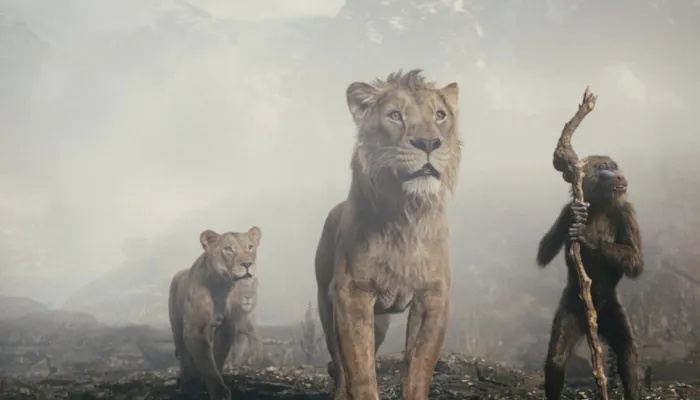
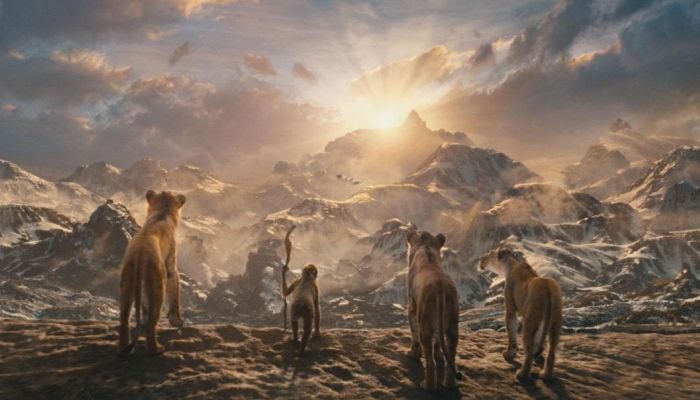
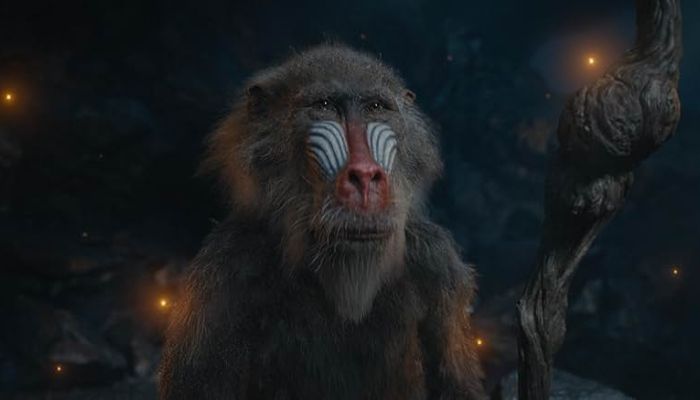

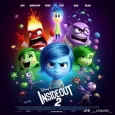
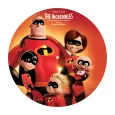


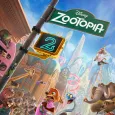

Leave a comment
Your comment is awaiting moderation. We save your draft here
0 Comments